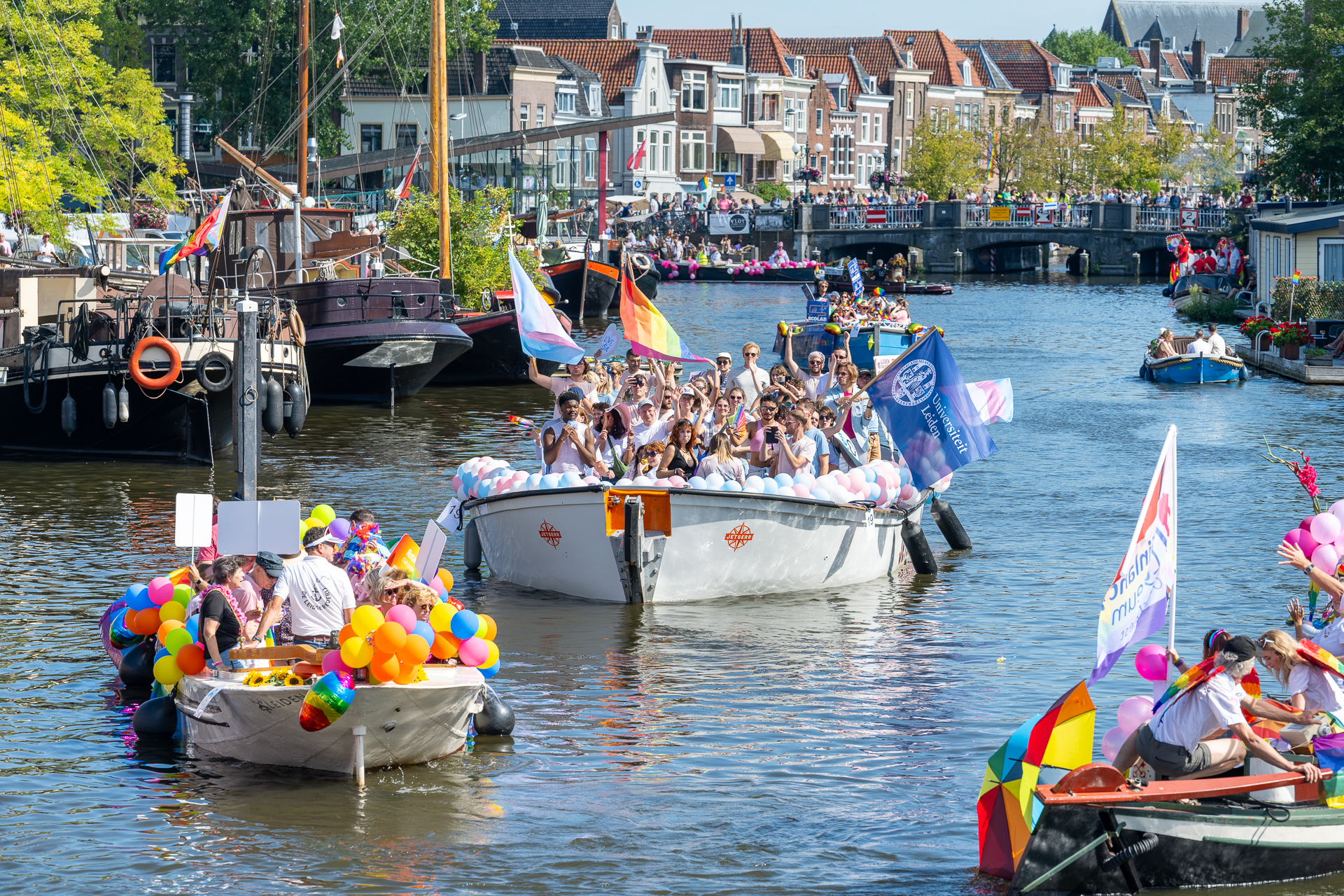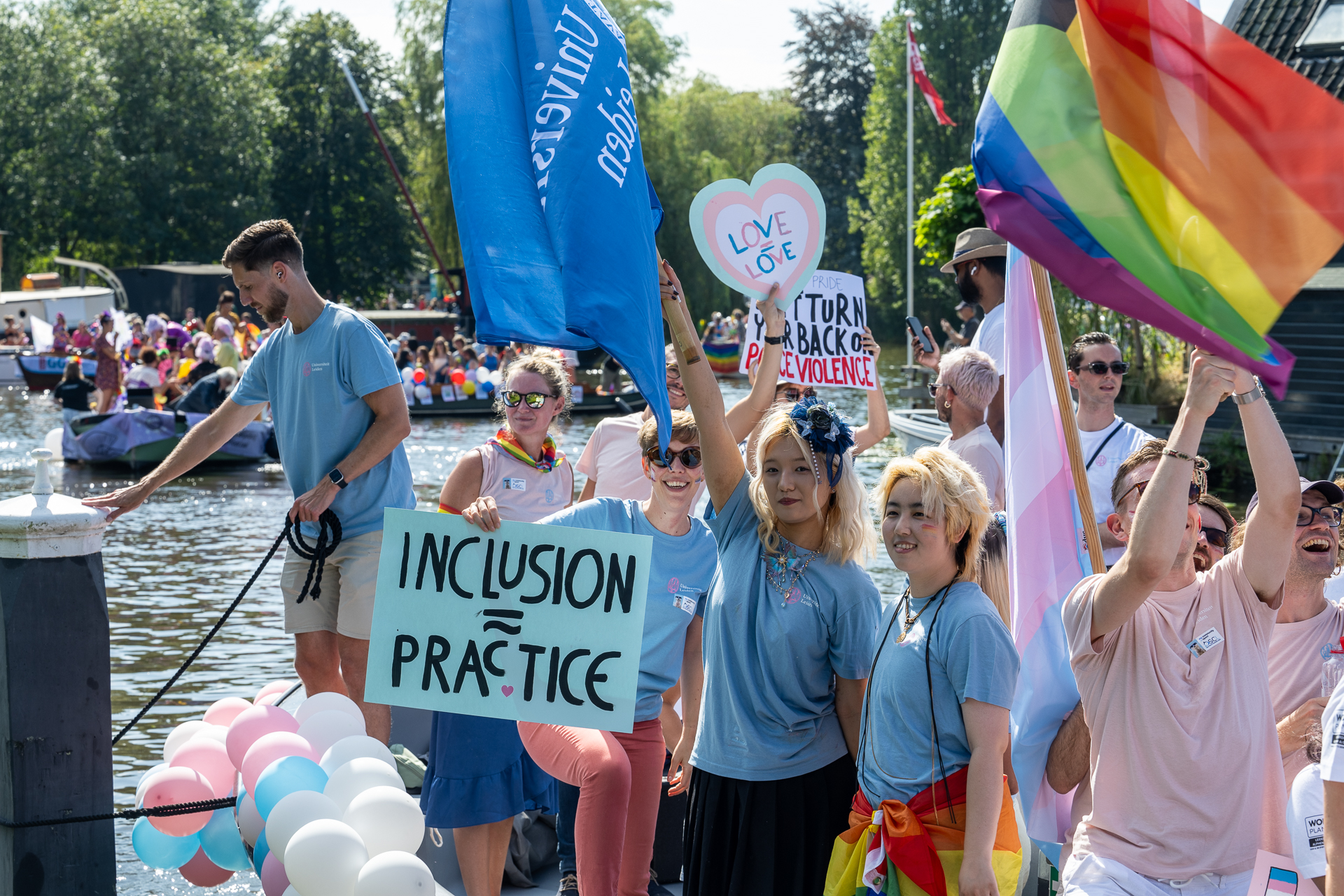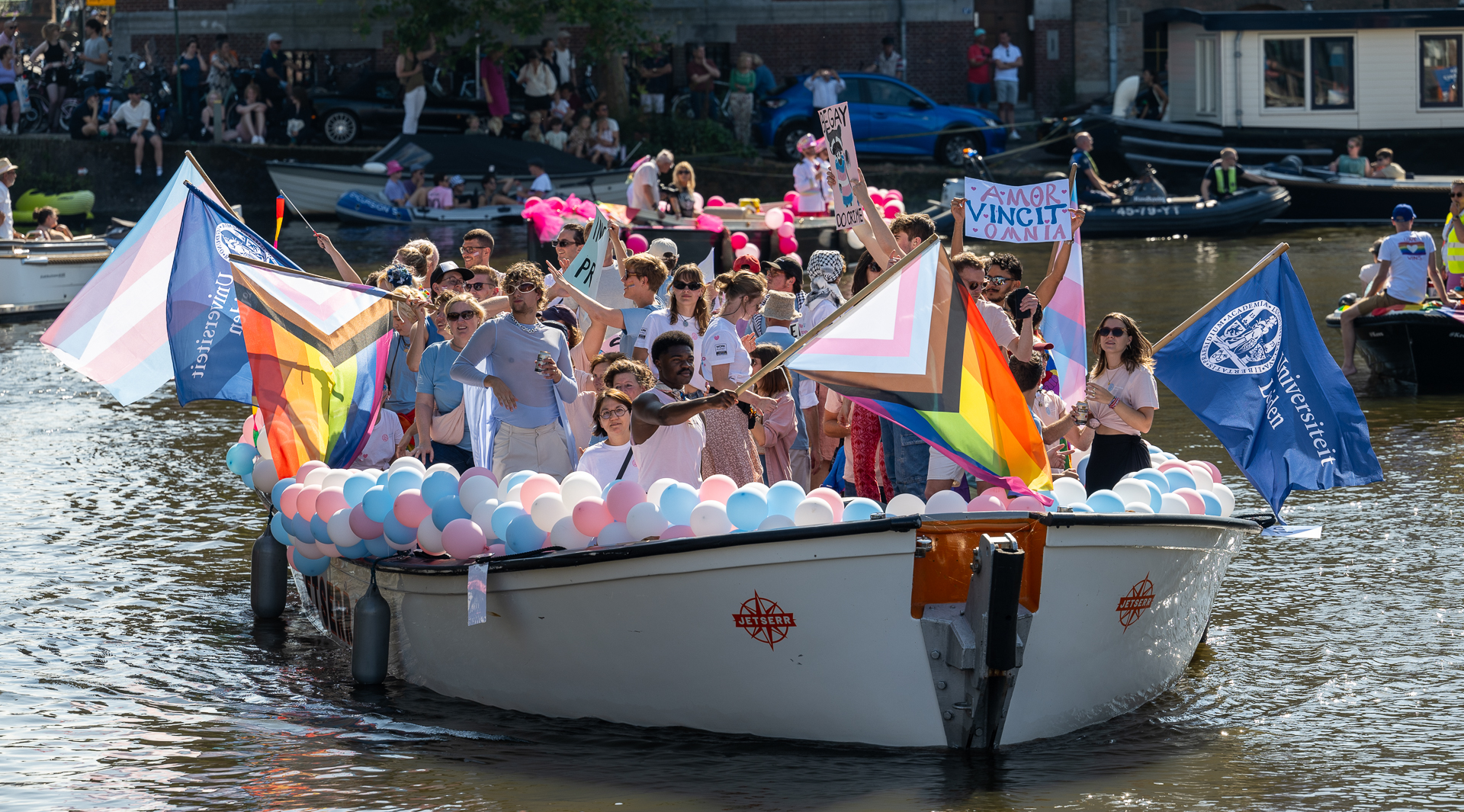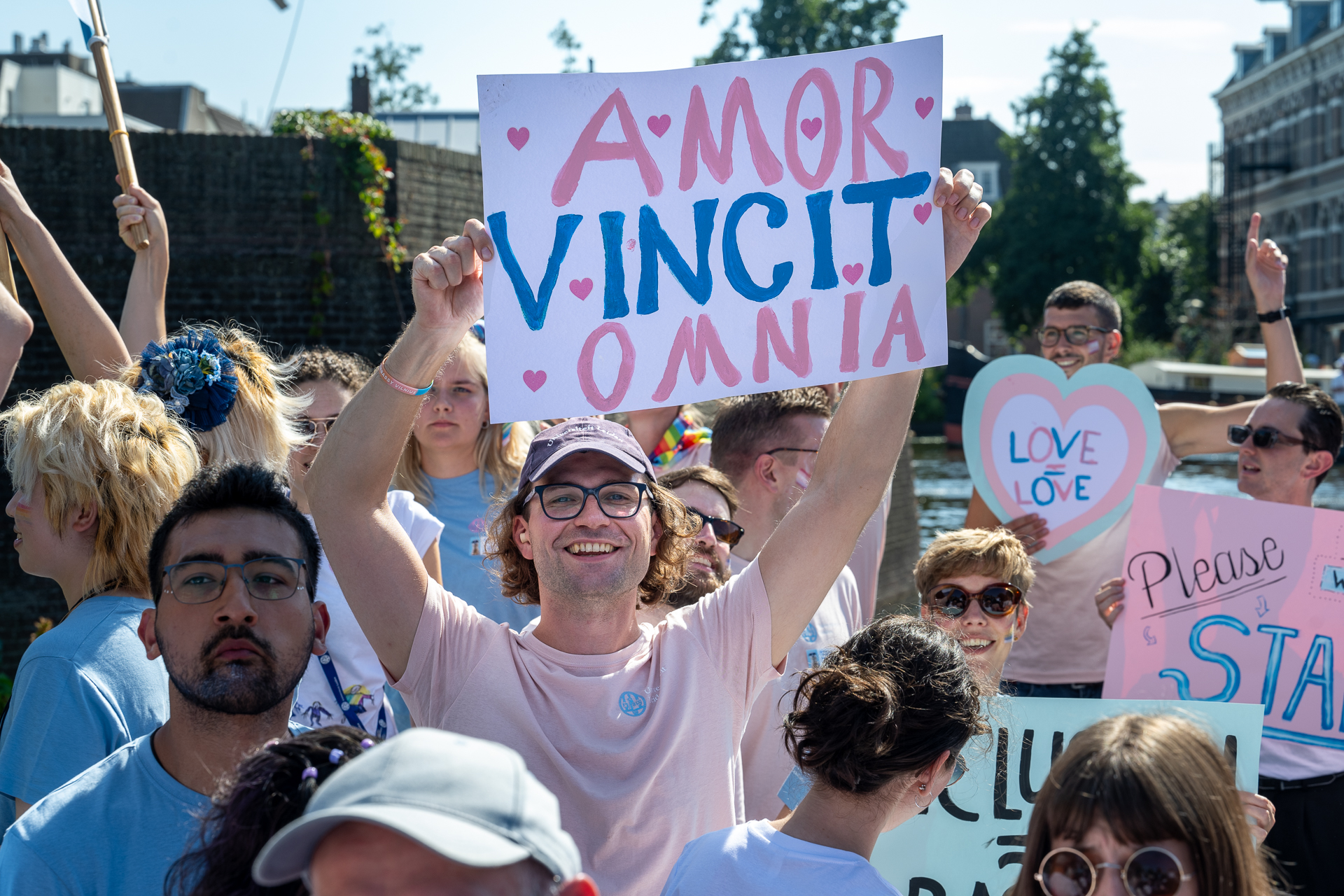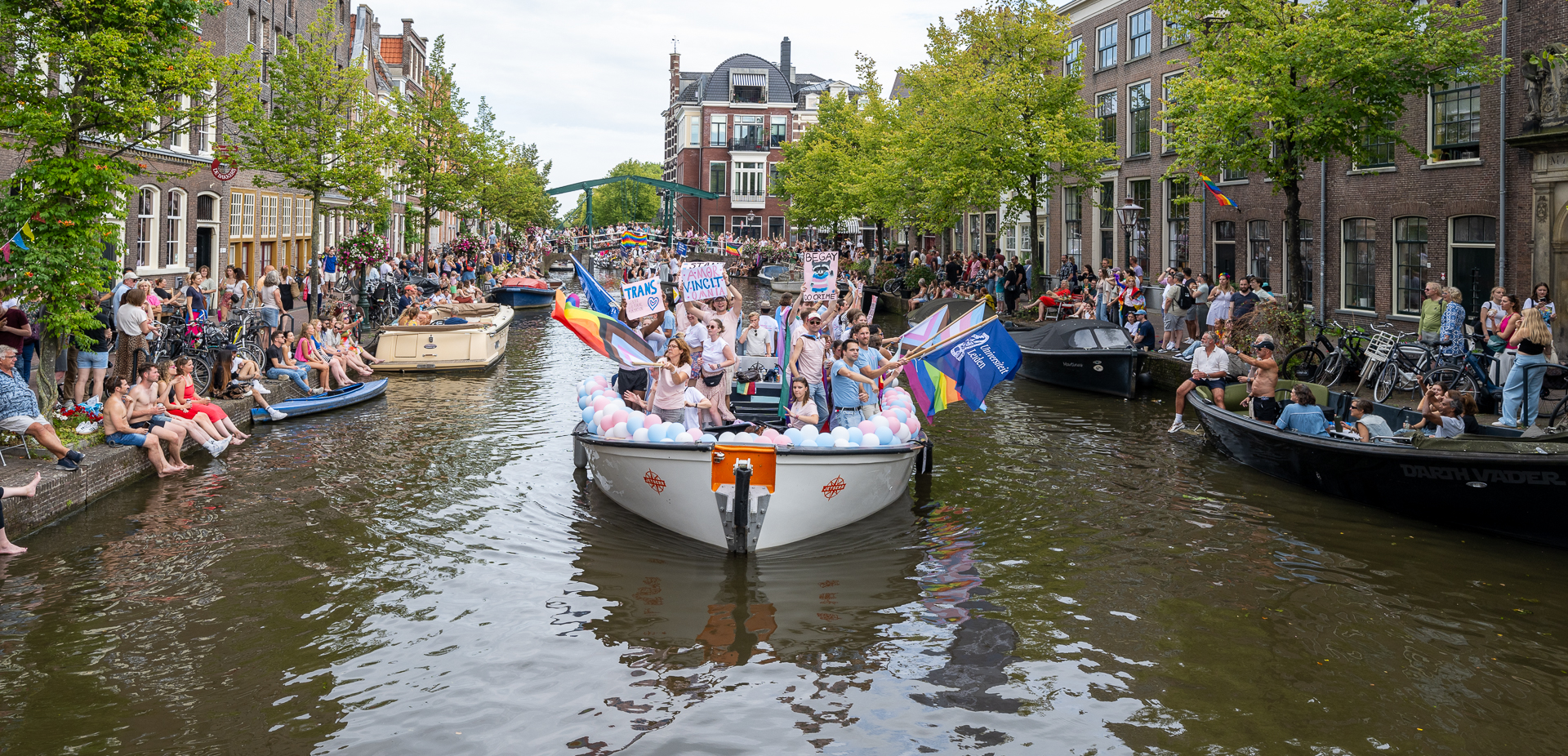
‘Partying is fine but we still need to protest’
Leiden University was present for the second time at the second Leiden Pride on Saturday. With a boat with room for 60 students and staff, decorated in the colours of the transgender flag. The university chose a theme this year to show that Pride may be a party but it is about more than just having fun.

Sarah de Rijcke, Dean of the Faculty of Social and Behavioural Sciences, immediately sets the tone in her welcome speech.
‘I’m fully aware that Pride is more than just a celebration. It is also about recognising that it is rooted in protest and that ongoing institutional change is still necessary. That is a crucial aspect of the history of the LGBTQ+ movement.’
Under the blazing sun, on a full boat bobbing on the Galgenwater canal, De Rijcke explains how the university has an important role in creating an environment where everyone feels at home. And that although much has already been done, much still needs to improve. ‘Being an ally means taking concrete action.’

Responsibility
And that is why the slogan chosen for this edition is ‘Make Leiden University a Space to be Trans*’. Afterwards, as everyone stands talking on the canalside looking flushed yet content, archaeology students Anouk Roggema, Lisa Anderson and Katrina Konzuk, who are on the organisation team, explain why they have joined in.
‘We wanted to make a point’, says Roggema. ‘It is easy to keep things general and say you have the best intentions for everyone, but if you choose a specific theme, you are more likely to get people to take responsibility for not just saying but actually doing.’
Should Sarah de Rijcke and co-organiser Looi van Kessel’s words at the start about how Pride is a protest not yet be clear enough, the signs held up by those on the boat soon clear up any remaining doubts.
Pride is no pinkwashing; it has a legacy of blood, sweat and tears. Facilities for the trans community, such as all-gender toilets and forms of address, still stir discussion and resistance.
Serious message
The parade through the canals of Leiden is one big party. Thousands line the canals singing, cheering and dancing, and the participants on the colourful boats do the same. The university boat has its own dance and the music starts at strategic points. But the signs waved by the students and staff have serious messages to say about tolerance, safety and being able to be yourself.

Visible support
Pride is a great way to get these messages across, say organisers Stephan van Es and Looi van Kessel.
‘You see so many people along the canalside who are heartened by what they see, who show visible support. That strengthens you as a community in the conviction that you are allowed to exist. Parents bring their children along and they see that this is how it should be’, says Van Kessel. ‘I also like that we have a more militant side to the boat. Partying is fine because we have nothing to be ashamed of. But we shouldn’t forget the other side of the story, that we still need to protest.’
This is what Roeland Merks, Professor of Mathematical Biology and Director of the Lorentz Center, is also aware of today. ‘Taking to the barricades isn’t my thing at all but with the current political and societal developments, it’s becoming more difficult again to be yourself. So I feel I need to show how important it is to look out for each other.’
Fun and important
That is precisely what the participants are doing throughout the day. They take care of each other, and not just at Leiden’s many low bridges, where they all duck down obediently.
‘That was great fun and important’ too, says Sarah de Rijcke. ‘It should be more than just a party. It’s also a symbol of our commitment to a safe university for all. We will continue to challenge ourselves to do better for our queer community so that we can create a truly inclusive community. Simply because we love everyone for who they are.’
Text: Eric de Jager
Photos: Monique Shaw

